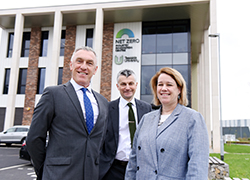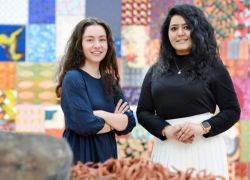University’s Digital Evidence Lab officially open for investigations
The Home Office’s Forensic Science Regulator, Andrew Rennison, has officially opened the University of Teesside’s new Digital Evidence Laboratory.
The Digital Evidence Laboratory is a new 30 workstation laboratory with 60 computers. State of the art software and hardware for computer and mobile phone examination has been installed to provide the most realistic environment possible. The laboratory is available for training courses, workshops and conferences, in addition to being used across all five of the University’s digital evidence programmes at BSc and MSc level. Students from the other Crime Scene Science and Forensic Science & Investigation courses will also use the laboratory.
Angus Marshall, Senior Lecturer in Forensic Science at the University, said, ‘This is one of the largest facilities of its type within any University in the UK. We are very pleased to have such a facility. Up to 30 students can carry out simulated casework and research at the same time. The facility should not be viewed as a student only domain and can be used for research and supporting police forces and other organisations with their training and case work investigations’.
Andrew Rennison was appointed as Regulator in February and is responsible for standards within the crime scene and forensic science industry in England and Wales. His role also includes accreditation and regulation which covers university provision.
Brian Rankin, Head of the University’s Centre for Forensic Investigation is also President of the Forensic Science Society and the forensic science representative on the Forensic Science Advisory Council, which supports the Regulator. He added, ‘It seemed quite opportune for the Regulator to open the new Digital Evidence Laboratory. While he was here we also met in his official capacity, where he talked about the role and contribution of the Forensic Science Society.’
 International partnership signed with prestigious American
...
International partnership signed with prestigious American
... Teesside University academics join prestigious network of
...
Teesside University academics join prestigious network of
... Curatorial studies culminating with international art
...
Curatorial studies culminating with international art
...